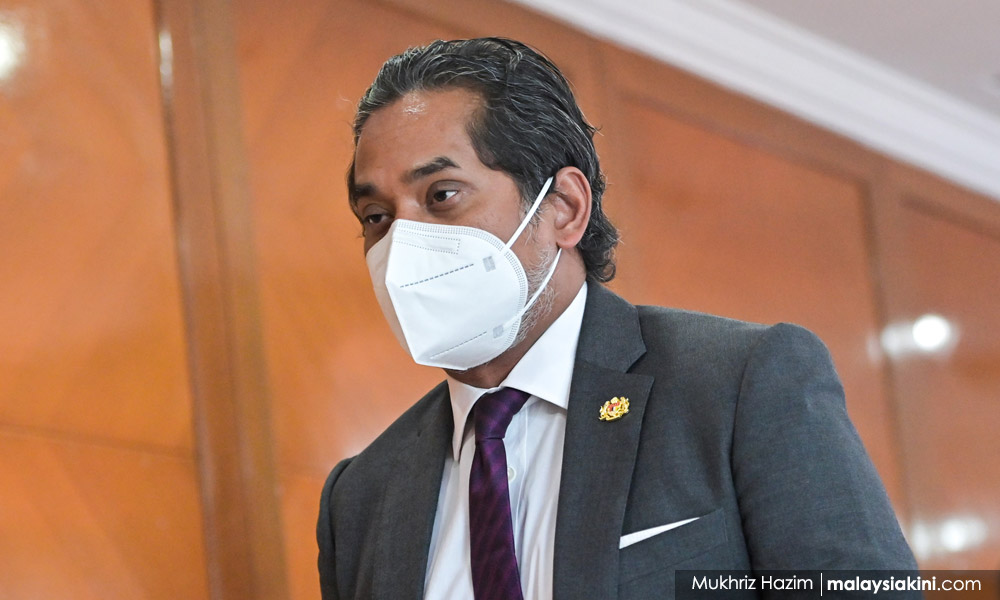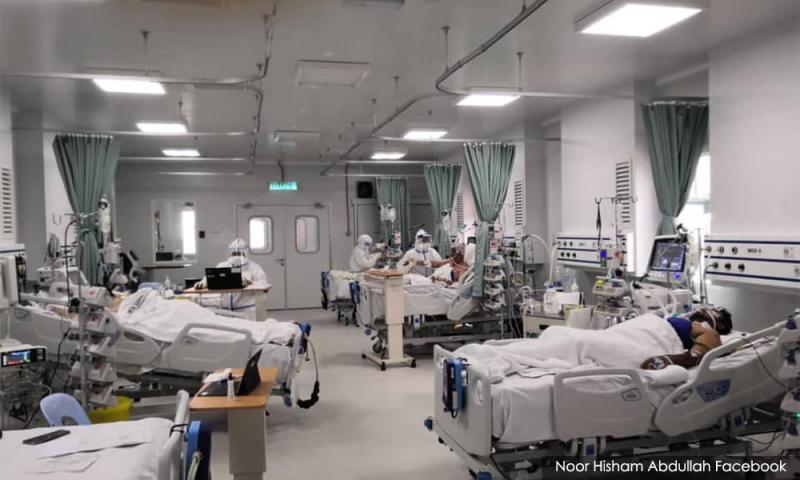LETTER | Measures need to be taken if NRP goes awry
LETTER | The Consumers Association of Penang (CAP) welcomes the Health Minister Khairy Jamaluddin’s recent announcement that a field hospital, complete with the intensive care unit (ICU) ward, to accommodate the increasing number of Covid-19 patients in Penang.
He had also said that he will discuss with private hospitals to rent out their operating theatres to enable Penang General Hospital (HPP) surgeons to perform surgery there for high-risk and critical cases.
While it is good that he is proactive in trying to solve the problems that HPP face, CAP urges him to examine the causes of the high number of daily cases at the same time. A pragmatic approach is to stem the rise in numbers than to only address the logistic aspects, particularly Penang which entered the second phase of the National Recovery Plan (NRP) in mid-August.
Penang NRP second phase came after it had been hit by more than 1,000 Covid-19 daily cases since Aug 11. It came to the stage where the HPP was reaching full capacity and spilling over soon if the number of daily cases remained high.
In September 2021, it was reported that the daily statistics that the people have been relying on have been inaccurate as there was a backlog of Covid-19 death data. The people were advised to refer to the new pandemic tracking website CovidNow for real-time “reported deaths” and “actual deaths”.
This revelation is shocking because, basing on the old reporting mechanism, the part of the daily data could be weeks old.
The lag in presenting data to the public was attributed to the overwhelming of the public healthcare system and the irony is that people have been relying on the statistics for probably more than a year, believing that they are up to date. Why didn’t the government inform people of the setback in data gathering?
On another note, if we look at the trend since the pandemic started, it is obvious that most of the cases were associated with factories and workplaces. It makes sense because those who go to work are exposed to the same air that an infected person breathes for a few hours in a confined space.
This increases the chance of contracting the Covid-19 virus. Moreover, air-conditioners recirculate the air in the room, thereby increases the chances of infection.
The World Health Organisation (WHO) recommended “a well-maintained and operated (air-conditioning) system can reduce the spread of Covid-19 in indoor spaces by increasing the rate of air change, reducing air recirculation and increasing the amount of outdoor air coming in”. WHO advocates natural ventilation and ceiling fans to dispel any stagnated air pockets in a room.
Such vulnerability also applies to other working people as well, such as market traders or front desk employees. These people’s working environment and interaction with their customers for many hours daily increases their infection risk although may be an open workspace.

They also risk fomite transmission from clothes, utensils, items, and furniture that the person come in contact with. Hence, the standard operating procedures (SOPs) have to be strictly adhered to minimise contracting the infection themselves as well as transmission to others.
Considering these facts, we are of the opinion that all working people who have to interact with people other than their family members should be prioritised in the vaccination programme.
The entire approach to the handling of the pandemic is worrying because the latest video clips in circulation on the social media shows families go camping and picnics with their children who appeared too young for the vaccination programme. According to a report, there were 310,074 cases between January and August 2021 involving children below 18 years old.
The reason is that there are already cases of vaccine breakthrough infections in the country.
It is crucial to know cases by age groups because children are a highly vulnerable group, and some of them are going back to school after following their parents for NRP outings that they are not supposed to.
The government should closely monitor any spike in infection rates two weeks after the second phase of the NRP. Are medical facilities prepared for this spike possibility?
One example of how Singapore’s reopening plans were upended by a growing Covid-19 infection cluster linked to karaoke bars. The Malaysian government should therefore take a cautious approach in the recovery process, particularly when the number of daily cases had not dipped below 15,000 over the past three months.
The government should abandon the idea of hitting the herd-immunity threshold of the population but instead try to achieve the maximum number of vaccinations.
According to 18 March 2021 article in Nature, it reasoned that Covid-19 herd immunity is probably impossible. Therefore, we urge the government to focus on using vaccination to reduce the severity of the infection as a more realistic approach.
We reiterate our call to the government to provide up-to-date data on the Covid-19 situation and a close monitoring of the situation of the states that transited into the second phase.
Also, it is welcoming to know that more granular data pertaining to Covid-19 will be released to the public. The release of granular data was stopped in October 2020 and resumed only recently with a promise to increase Health Ministry’s transparency.
The writer is president of Consumers Association of Penang.
The views expressed here are those of the author/contributor and do not necessarily represent the views of Malaysiakini.
RM12.50 / month
- Unlimited access to award-winning journalism
- Comment and share your opinions on all our articles
- Gift interesting stories to your friends
- Tax deductable
